Last Chance to Catch NYC's Holiday Notalgia Train
We met the voices of the NYC subway on our nostalgia ride this weekend!


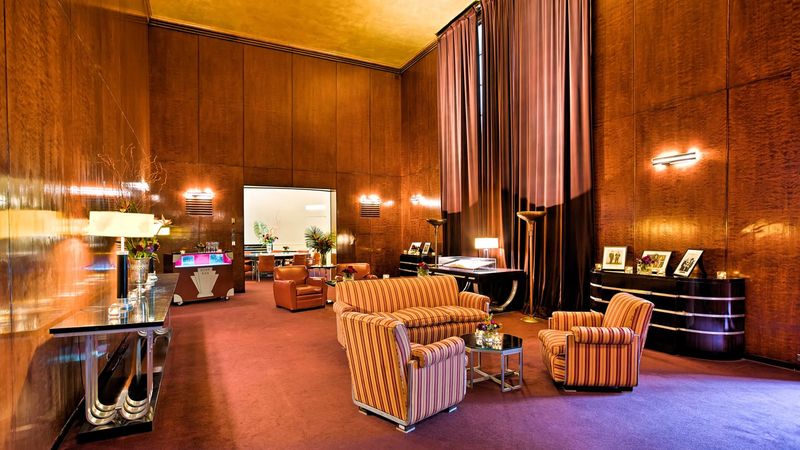
New York City is full of enviable addresses, but some of the most desirable residences might be ones you never even knew existed. Inside famous New York City landmarks like Radio City Music and the historic branches of the New York Public Library, there are hidden apartments. These secret abodes were created for a variety of reasons, from convenience and necessity to pure whim. Read on to uncover 9 hidden apartments:
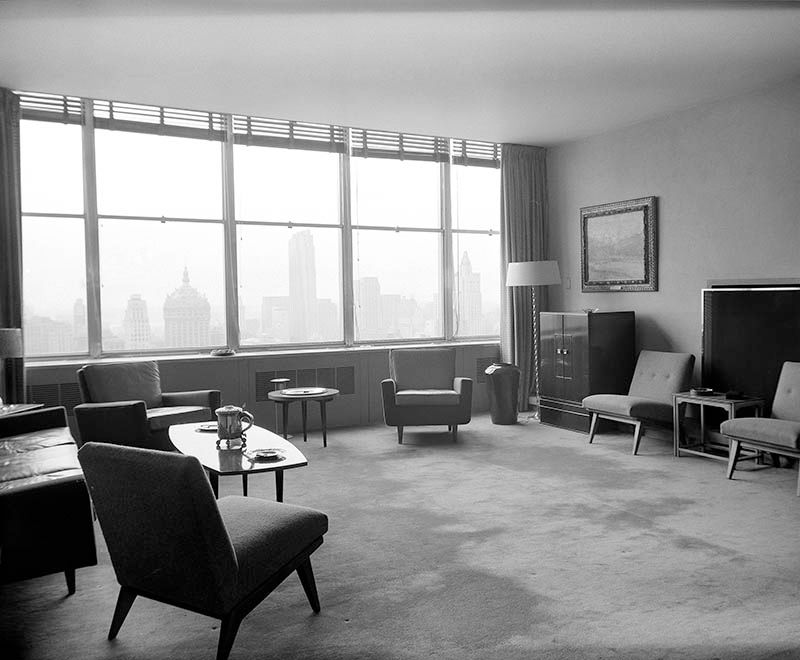
The 38th floor of the United Nations Headquarters once housed a private hidden apartment for the UN Secretary-General. This apartment was in use from the 1950s through 2016. It was comprised of a living room with large windows, a modest kitchen and bathroom, a bedroom, and a private conference room. The apartment shared the floor with the offices of the Secretary-General and his direct staff. U.N. Secretary Hammarskjöld filled the apartment with paintings by Pablo Picasso, Henri Matisse, Georges Braque, Fernand Leger, Fritz Glarner, and Juan Gris from The Museum of Modern Art and it boasted some great mid-century furniture.
No. 3 Sutton Place, a townhouse acquired by the UN in 1972 now serves as a residence for the Secretary-General since the 38th-floor apartment was converted into offices and conference rooms in 2016. The conversion of the apartment was part of the Capital Master Project, a $2.1 billion renovation of the United Nations Complex. You can see vintage photos of the hidden 38th-floor apartment here!
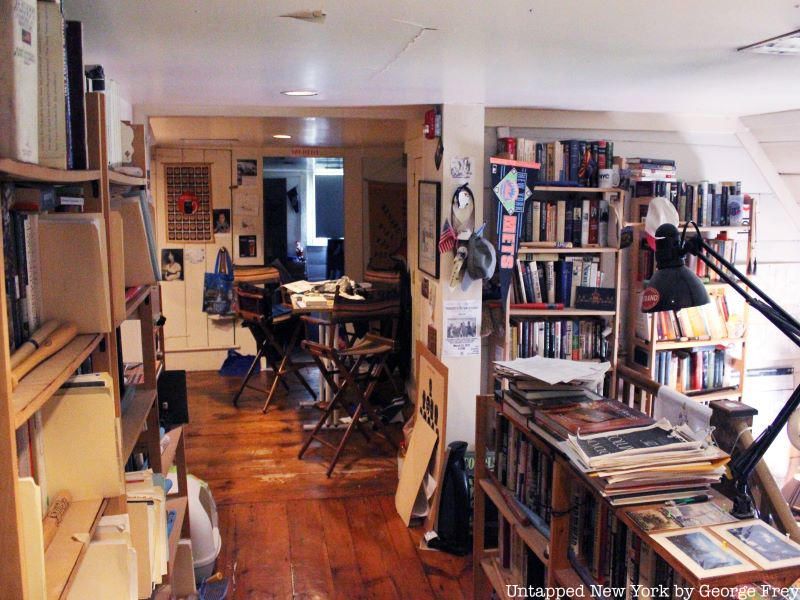
Roy Fox has been living in Queens rent-free since 1989. Fox is the caretaker at King Manor, a historic inn and farmhouse owned by abolitionist Rufus King. The biggest perk of the job is the free apartment on the top floor of the 18th-century home.
Unlike many of the other hidden apartments, this one is still occupied by Fox. He lives there with his cat Mary Alsop King (named in honor of the 19th-century lady of the house) and a collection of more than 4,000 books. Fox has become a beloved figure of the house, which is now a museum. Untapped New York Insiders got to go inside his apartment, affectionately called “The Fox Hole,” on a tour of King Manor, even though his apartment is usually not open to the public. See photos here!
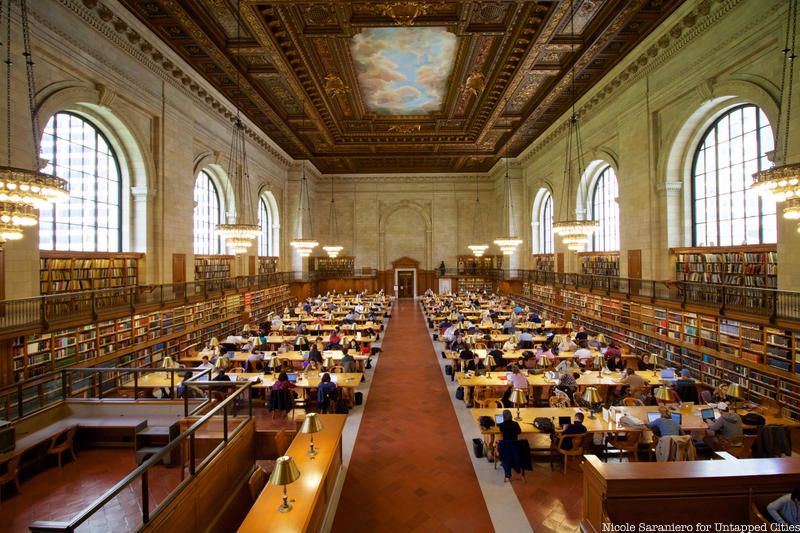
The New York Public Library holds many secrets, including hidden apartments for live-in library custodians. These apartments were spread throughout the different branch buildings in the library system. In addition to keeping the library clean, the main job of the custodian was to make sure that the furnaces kept burning. Even the 42nd Street branch had a secret apartment.
The Schwarzman Building apartment was occupied by superintendent John Fedeler and his family from 1911 to 1941. His daughter was even born in the library! Fedeler’s son took over the position in 1941. While the apartment at the Schwarzman building was large, with eight rooms, the size, and style of various library apartments varied throughout the library system. According to the New York Times, the last resident custodian retired in 2006 and all of the apartments have since been adapted for other library purposes.

The architect of Art Deco Radio City Music Hall, Edward Durrell Stone, and its interior designer Donald Deskey, built a hidden apartment inside Radio City for famous entertainer Samuel “Roxy” Rothafel. Echoing the Art Deco design of the theater, the apartment was the perfect place to entertain the greats of Hollywood’s golden era like Alfred Hitchcock, Samuel Goldwyn, and Olivia de Havilland.
Lush curtains hang from the 20-foot-high gold leaf-covered ceiling. The walls are paneled in luxurious cherry wood. The apartment remains largely unchanged from when Roxy occupied it in the 1930s. Today, the space is available to rent for special events and you can visit it on a guided tour.

There were a few different hidden apartments in the Chrysler Building. One belonged to Walter Chrysler who reportedly boasted of having the highest toilet in Manhattan. LIFE photographer Margaret Bourke-White also had an apartment in the building, on the 61st floor. It was on this floor that Bourke-White, well-known for her images on skyscrapers in the 1920s and 30s, was photographed atop one of the gargoyles in 1934. Her lease was co-signed by Time, Inc. because the building wouldn’t rent to a woman, despite her wealth and fame. She paid $387.92 per month to live there, a good amount of money at the time.
According to The New York Times, Bourke-White hired “her good friend, John Vassos, an industrial designer, to create an Art Moderne stylish interior, with extensive built-ins, subdued palette, woods, and metals. There was a main sitting area, an alcove for her desk, and stairs that go out to the terrace. The superintendent reminded Bourke-White that her lease did not include access to the terrace, and she wrote back, “Of course.” But she invited businessmen whom she wanted to befriend to have cocktails on the terrace.”
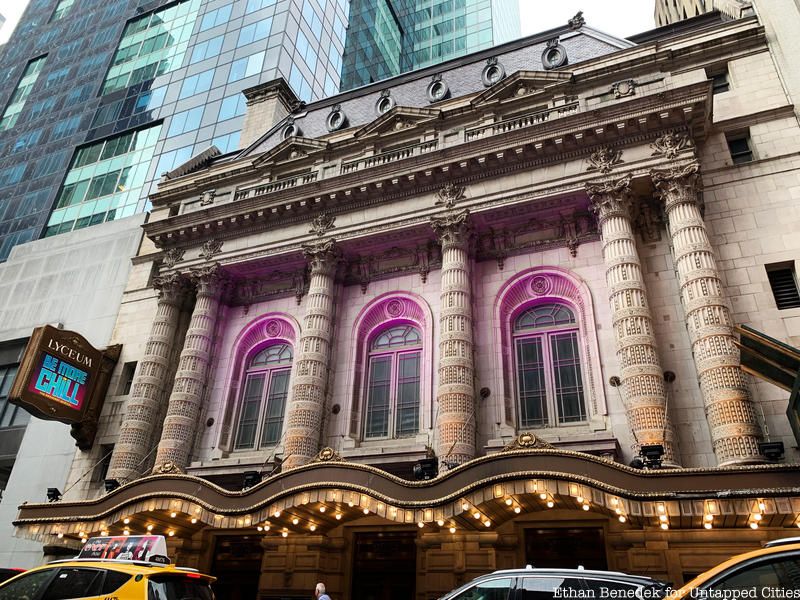
The Lyceum Theater on 45th Street next to Times Square had a hidden apartment above the theater. This residence was occupied by impresario Daniel Frohman, the producer, and manager who founded the Lyceum. From his apartment, Frohman could oversee the various shows in production.
Today, the apartment houses the Schubert Archives. You can see what it looked like in Frohman’s time and what it looks like today in this video. The Lyceum was the first Broadway theater to achieve landmark status and it is one of the longest-running theaters in the city.
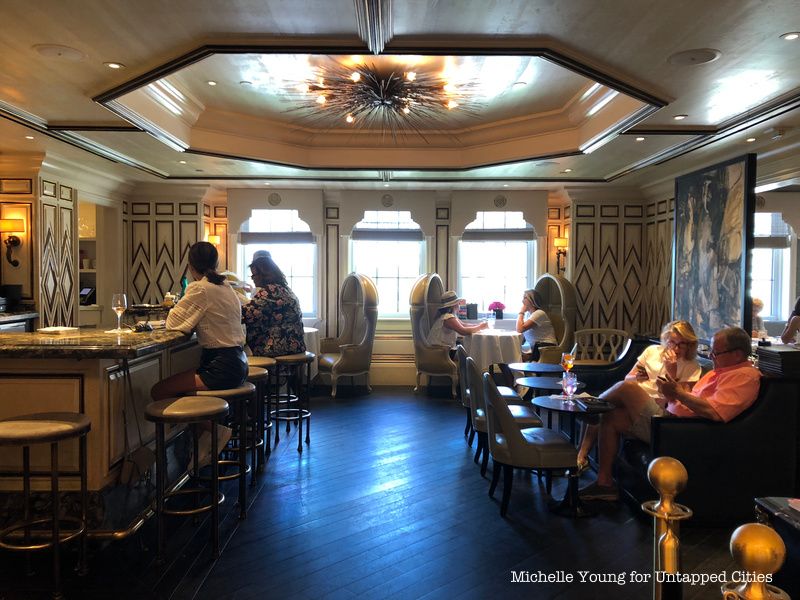
Bergdorf Goodman once had a seventeen-room hidden apartment overlooking Fifth Avenue and Central Park. When Edwin Goodman, who bought out Herman Bergdorf’s share of the company in 1903, decided to move the store to its current location on the corner of 58th Street and Fifth Ave., he made sure the new building would include a private apartment for his family. Bergdorf Goodman even had a private elevator that only made two stops–Goodman’s office on the seventh floor and the penthouse suite.
But here’s the kicker: due to zoning laws, Edwin and his son Andrew had to call themselves janitors in order to live inside the store! Bergdorf Goodman sits on the site of the former Cornelius Vanderbilt II mansion, so it’s not surprising that the Bergdorfs would also want that great view of Central Park. Andrew Goodman and his wife Nena lived there until the 1980s. The apartment was eventually turned into a salon.

The Abercrombie & Fitch brand originated as an outdoor outfitter company that supplied adventurers like Theodore Roosevelt, Admiral Byrd, Charles Lindbergh, and Amelia Earheart. In 1917, the company moved to a 12-story building on Madison Avenue and 45th Street. At the top, Fitch built a furnished 20 by 50-foot log cabin which he made into his townhouse.
The cabin was complete with a wood-burning fireplace and a pool where a fly and bait-casting instructor gave fly fishing lessons. It was also the site of the first Adirondack Club meetings. (h/t to reader P Gavan for the tip!)
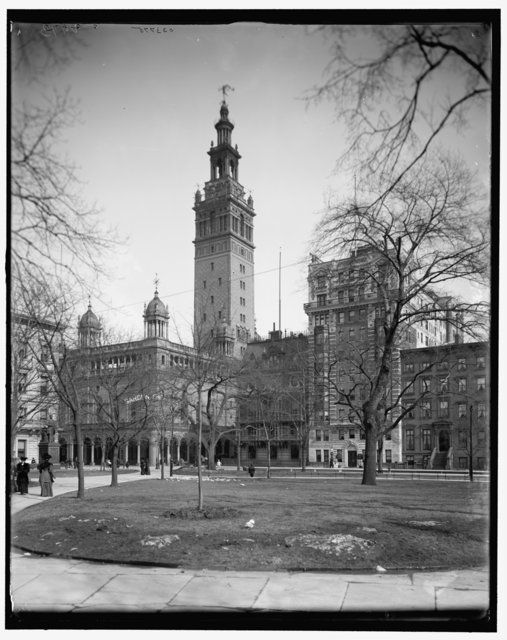
The second Madison Square Garden (the last actually at Madison Square), was a Moorish-style building designed by playboy architect Stanford White in 1890. It had a 33-story tower, making it the second-tallest skyscraper in New York City at the time. White had an apartment in the tower, out of public view. It provided White with a private place to entertain and seduce. One of the objects of his affection was Evelyn Nesbit, a well-known model and chorus girl dubbed “The Most Beautiful Girl in the World.” White, who was married, got caught in an ill-fated love triangle between Nesbit and her millionaire husband Harry Thaw.
White’s tower apartment gave him easy access to the entertainment on the rooftop pleasure garden at Madison Square Garden, and it is there that Nesbit’s husband, shot him in the head. White had long since moved on from Nesbit, but Thaw was reportedly mentally unstable and had a long-running hatred of White.
Next, check out the Top 10 Hidden Bookstores in NYC
This article was originally written by Michelle Young and Laura Itzkowitz and updated by Nicole Saraniero in January 2023
Subscribe to our newsletter